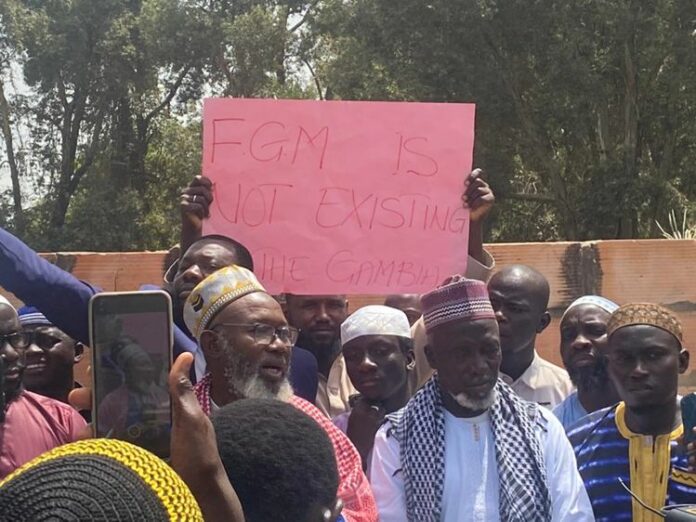By: Dawda Baldeh
A Pro Female Genital Mutilation group named Gambian Women are Free to Choose (GWAFC) called on lawmakers to repeal the Women Amendment Bill 2024, citing health, religious, and cultural benefits. This group believed that women should be given the chance to choose by making the practice optional without any hindrance.
The Pro FGM group wants the repealing of section 32A which prohibits female circumcision and section 32B which prohibits accomplices. In a joint statement, the group said their organization echoes the vast majority of grassroots women in The Gambia who uphold female circumcision as a religious expression and a cultural right. They also revealed plans to present a position paper to the National Assembly Select Committee on Health and Gender to state their stand.
“We will finalize and submit a detailed position paper with important references to legal, medical, social, anthropological, human rights, and sex/gender studies,” they said.
Despite wide condemnation of the practice globally, many Muslims worldwide view both female and male circumcision as complementary and interdependent Sunna practices in Islam. “Although neither practice is explicitly mentioned in the Quran, both female and male circumcision are part of the Hadiths of the Prophet Muhammad (S.A.W) and thus are valued as a religious duty,” the group cited. The Supreme Islamic Council in The Gambia has issued a Fatwah defending female circumcision as a Sunna practice and the right of Muslim women to uphold female circumcision as a religious expression and duty.
“Female and male circumcision are complementary and interdependent cultural practices that predate Islam. The majority of ethnic groups in The Gambia practice both male and female circumcision as part of gender-inclusive initiation that confer and affirm the right of marriage between a husband and wife in accordance with ancestral tradition or customary law,” the Pro FGM group added.
This group asserted that female circumcision is experienced as a beautifying procedure that enhances women’s sexual pleasure and orgasm. According to the Pro FGM group, female circumcision is also affirmed as an aesthetic practice in the Hadiths as well as by the increasing popularity and normalization of female genital cosmetic surgeries, such as labia-plastic, clitoris-plastic, and hood ectopy in western countries and around the world. They cited that practicing female circumcision, referred to as FGM by the WHO and other activists, as a way of enhancing hygienic and eliminating the transmission of cancer-causing HPV virus among others.
“Despite the promulgation of FGM (Female Genital Mutilation) propaganda by activists via WHO, various UN agencies, and mainstream global media, there is no scientific or medical evidence demonstrating that uncircumcised women living under the same environment and facing the same constraints or obstacles to adequate health care as circumcised women have more favorable outcomes in terms of sexual and reproductive health,” they emphasized.
They firmly believed that aside from female circumcision’s religious, cultural, gender, aesthetic, sexual, and health benefits, the practice is protected under the Constitution of The Gambia by specific provisions that guarantee gender equality, the right to religion, and the right to culture.




